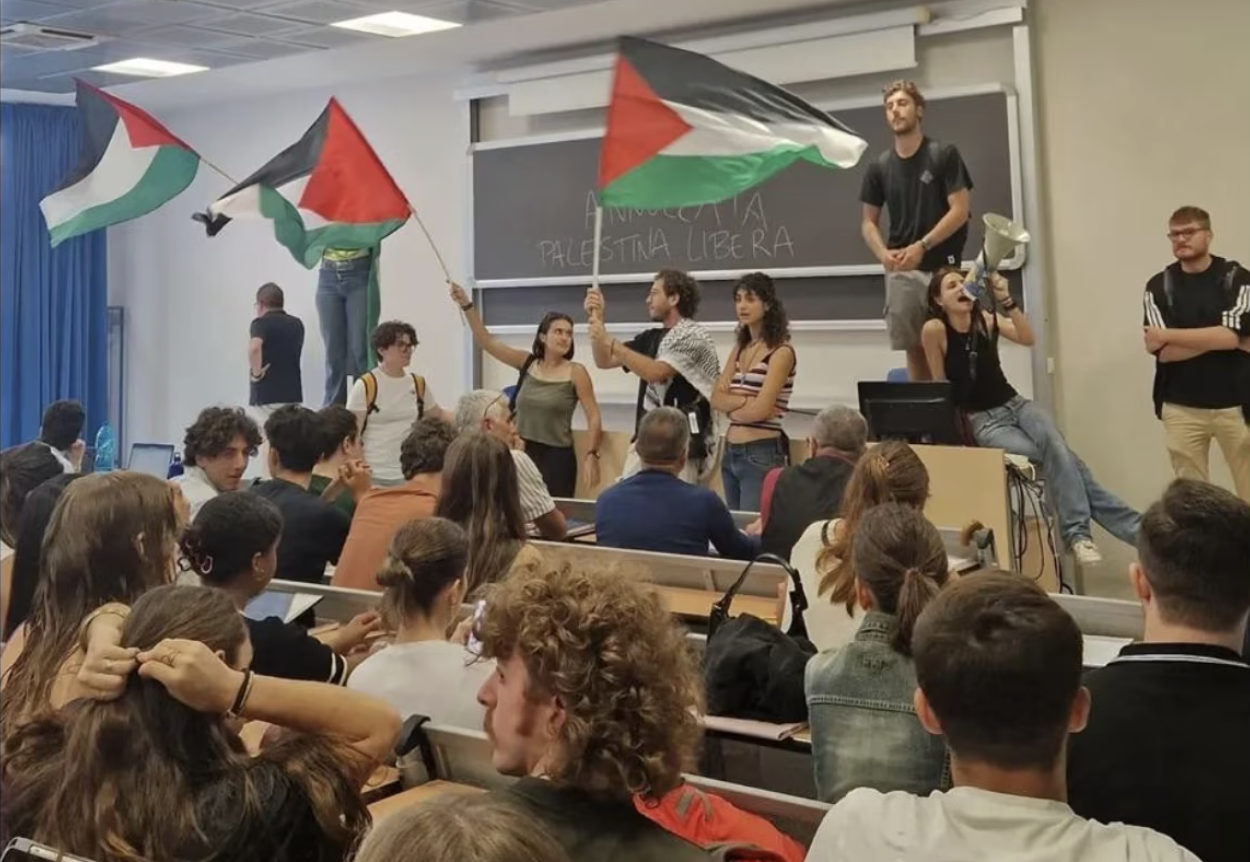PISA – Israeli ambassador to Italy: “Universities should not underestimate the atmosphere of hatred”

As reports of aggressive anti-Israel incidents in Europe become increasingly frequent, the violent assault of a professor by pro-Palestinian protesters during class at the University of Pisa has sparked a fierce debate in Italy. Rino Casella, a comparative constitutional law professor, told Italian media that he was accused of being a Zionist “only because he has always said he is not pro-Palestinian.” “There were over 200 students in the class, and none of them sympathized with the protesters.”
On September 16, pro-Palestinian activists burst into the classroom, waving Palestinian flags and hurling abuse at Casella. This was apparently in response to his objection to the university’s recent announcement that it would cut ties with two Israeli universities. The situation deteriorated when a student tried to take a flag from the protesters. The hitting started, and I tried to shield him. However, both the student and I were kicked and punched. In the emergency room, the prognosis was seven days.
The next day, Jonathan Peled, the Israeli ambassador to Italy, joined the condemnation expressed by many institutions. He expressed solidarity with Prof. Casella and denounced “a dangerous climate of hatred that university administrations should not underestimate.”
Peled appealed to Italian universities, urging them to “guarantee an academic year inspired by the values of universitas and inclusion on which their communities are based — far from the ideological drifts whose tragic effects we see before us.”
Noemi Di Segni, president of the Union of Jewish Communities, also denounced the incident. She highlighted “an escalation that we have long been concerned about. It stems from violence that has been tolerated for a long time and the normalization of Hamas propaganda. This way, terrorism is legitimized.” The Union of Italian Young Jews (UGEI) strongly condemned the protest. Bursting into a class “directly attacks academic freedom and the safety of the university community.” Expressing solidarity with Casella, he called for “a firm barrier against these behaviors because the university must remain a place of study and dialogue, not a stage for propaganda.”
